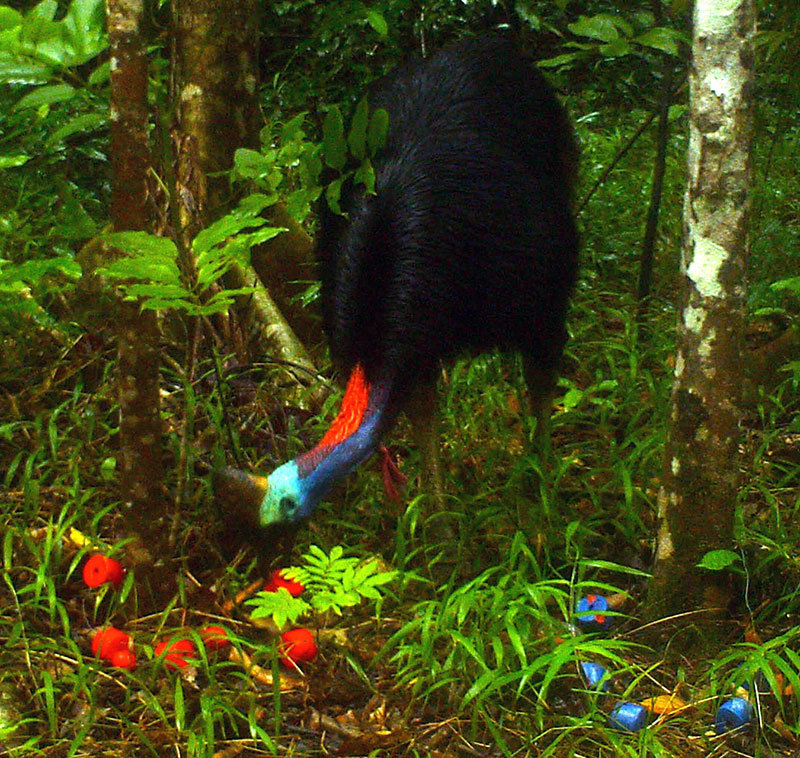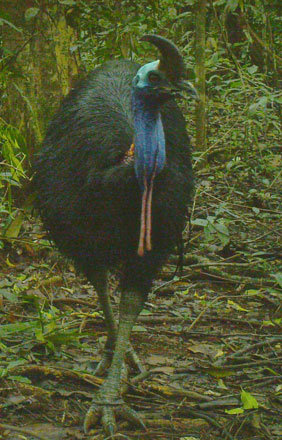By Julian Gray | CEO, Rainforest Rescue
Monitoring released cassowary chicks
We last reported on the release of three rehabilitated Cassowary chicks at Hudson River National Park. The birds were carrying a new technology that will enable researchers at Charles Darwin University to track them over the next few years. The tags are monitored by fixed listening stations deposited throughout the forest.
Hamish Campbell,Senior Lecturer at Charles Darwin University, reports: “The chicks were detected a week after release and all appeared to be doing fine. However, with the wet season it has not been possible to get into Hudson National Park to download the receivers. We are hoping to be able to access the receivers after the wet and check if the chicks are still in the area and are alive and well.”
Cassowary Research
We’ve published more details from Wren McLean’s research into the ecology of Cassowaries in the World Heritage listed Daintree Rainforest in tropical Far North Queensland. One part of Wren’s research was to use camera traps to photograph wildlife investigating brightly colored lures she set out in the forest.
“All camera traps combined provided a pool of 466 visual records from which we were able to identify 45 individual cassowaries of which 64% were adults, 18% sub-adults and 18% chicks. Cameras provided other useful information on cassowary predators (domestic, pig-hunting and wild dogs), feral pigs and photos of three Bennetts tree kangaroos at two different locations.”
A story detailing more informationabout Wren’s research and findings is linked at the end of this report.
Thank you kindly for your support for this important project – your care and interest in our work enables Rainforest Rescue to operate these projects to help save the Endangered Southern Cassowary! Your support is having significant impact, assisting us to make great progress in securing a bio-diverse future for this unique species and its native rainforest habitat in Australia.
All this would not be possible without your generous support. Thank you!
Links:
Project reports on GlobalGiving are posted directly to globalgiving.org by Project Leaders as they are completed, generally every 3-4 months. To protect the integrity of these documents, GlobalGiving does not alter them; therefore you may find some language or formatting issues.
If you donate to this project or have donated to this project, you can receive an email when this project posts a report. You can also subscribe for reports without donating.
Support this important cause by creating a personalized fundraising page.
Start a Fundraiser
